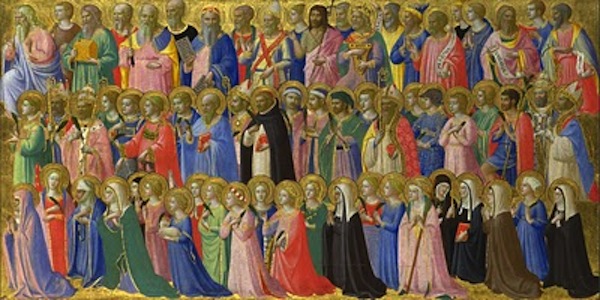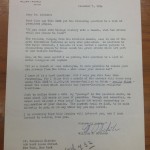Christianity is in large part a narrative, a story, and the psychological implications of that may be greater than we ever realized. This past Sunday, Bruce Feiler wrote a wonderful reflection on the psychological importance of family stories in the New York Times. What helps children stay resilient in the face of crises, he argues, is their ability to place themselves within a larger family narratives – particularly ones that include both ups and downs. Feiler draws on the the work of Dr. Mashall Duke, who has studied the benefits of being grafted into such “oscillating family narrative”:
“’The most healthful narrative…[is] called the oscillating family narrative: ‘Dear, let me tell you, we’ve had ups and downs in our family. We built a family business. Your grandfather was a pillar of the community. Your mother was on the board of the hospital. But we also had setbacks. You had an uncle who was once arrested. We had a house burn down. Your father lost a job. But no matter what happened, we always stuck together as a family.’”
Being part of a family narrative of this kind can apparently make all the difference to our psychology. But what goes for family stories goes even more for the story of our faith. I’ve found that the story that gives me the most strength and resolve in crisis is not that of my large, clannish biological family, but that of my spiritual family – the church.
Despite the ups and downs, my family narrative is one of overarching positive development, with the struggles of immigration and unemployment resolving themselves while each new generation faces fewer pains than the prior. Yet bleating in the back of my mind is this sinking worry: while my grandparents and parents lived during a time of American prosperity and growth, it’s unclear that this trajectory will continue. The narrative of my biological family loses its comfort because it is still mired in a particular economic situation that is not guaranteed, because the rapid forces of change in our society cannot offer me hope that the past 75 years are anything more than a blip in the radar – a statistical anomaly that happened to benefit my parents.
In one sense, these family narratives are still helpful, reminding us that our experience isn’t simply the end of the story. But these provincial tales are limited segments of a bigger, bolder narrative spanning thousands of years and billions of people. The narrative of faith – as depicted in the Bible and the tradition of the church – is the ultimate family story that binds. In it, we witness the many ancestral peaks and troughs, both on an individual and corporate level. Abraham, the father of faith, both receives the promises of God and distrusts God so much that he lies to kings and takes a concubine. David, a man after God’s own heart, commits adultery and murder. Peter, a close disciple of Jesus, denies Christ three times before becoming one of the leaders of the early church. Each story reveals real men and women wrestle with their brokenness before a living God who responds with grace and mercy, who lifts them out of their struggles and pushes them to new heights.
My family line may end with me, and that story end with my demise. Yet the story of the church is much bigger than a biological family. I have the stories of the saints – of Teresa of Avila, of Simone Weil, to keep me company in my singleness. In my poverty, I may reflect on the spartan lifestyles of St. Francis or Shane Claiborne. In my questions, I recall doubting Thomas and Kierkegaard and Aquinas. In my trials, I am reminded of Jesus on the cross, Perpetua and Felicitas at their martyrdom. Being adopted into this family of faith at my baptism, I have countless more aunts and uncles, brothers and sisters to turn to for tales of strength and weakness, victory and defeat, perseverance and payoff. In the end, I can share their trust that my comfort lies not in my ability to predict my own path or imitate them, but in a God who is weaving together all these stories into his grander narrative of the church.
The psychological study that Feiler draws upon was titled, “Do you know?” referring to a child’s knowledge of the family history. It calls to mind a passage from the book of Isaiah – “Do you not know? Have you not heard? The Lord is the everlasting God, the Creator of the ends of the earth. He does not faint or grow weary; his understanding is unsearchable. He gives power to the faint, and to him who has no might he increases strength.”
This idea of a God who helps the weak and comforts the afflicted in conjunction with the long history of saints is far more comforting than the 70-odd year old Monge oral tradition. In truth, any one family’s story may only be a weak reflection of this grander story spanning thousands of years and billions of people. But in the story of faith, we find ourselves through both wins and warts with hope for a good outcome.













